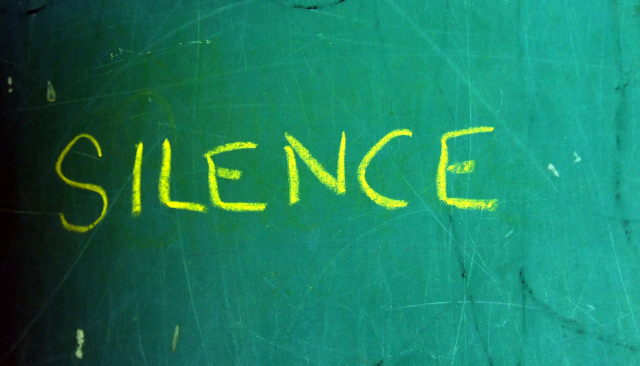
The power of silence in public discourse can move mountains or bury a person under it.
It can be a powerful weapon of rebellion that kills a negative thought or idea, but it can also be a tool for complicity and allow evil to reign.
When confronted with a complex issue, one has the choice to be silent or to speak. Here are six ways one should consider before making a choice.
First, if one has carefully considered a subject from various perspectives and is with an audience that is receptive to change, then by all means, it is good to speak up.
Secondly, it is not worth the time or energy to convince someone who already has their mind made up.
Thirdly, preaching to those with the same mindset is tedious and redundant. It fails to explore options or different ways of seeing things. It has its place for some leaders to occupy, but not for me. I would rather be silent than speak this way.
Fourth, being silent is better than engaging in a circus that demands easy answers and quick wit. We like stories limited to a 30-second sound bite, a good line, or rhetoric the mind can easily digest and discard. Avoiding simple answers takes a lot of thought and preparation. Sometimes, finding an appropriate one may take years or a lifetime.
Fifth, silence can be a form of rebellion.
I lived in Israel for almost a year, and I understand the existential angst caused by Iran. I have read three technical books on the Iran-West conflict. These experiences don’t make me an expert in comprehensively explaining the conflict. It is enough to know that the Western media is oversimplifying the conflict and an awareness that Israel and Iran tightly control their news media. Truth is irrelevant in this situation. Winning is everything; manipulating people and organizations to gain international sympathy is essential. Radical silence is a rejection of that control. It is also an affirmation that I don’t have access or insight into the realities of the situation.
Last, silence can be a form of culpability and foster evil. There are times when one has to speak out, even if 10,000 are in disagreement. For example, the Canadian law for end-of-life decisions is woefully inadequate—one of the worst in the world. One cannot remain silent on issues such as this. One has to be outspoken. All parties must come to the table to build a comprehensive solution. Silence in this situation would only worsen things and is a form of complicity.
Photo by Avolore on Freeimages.com